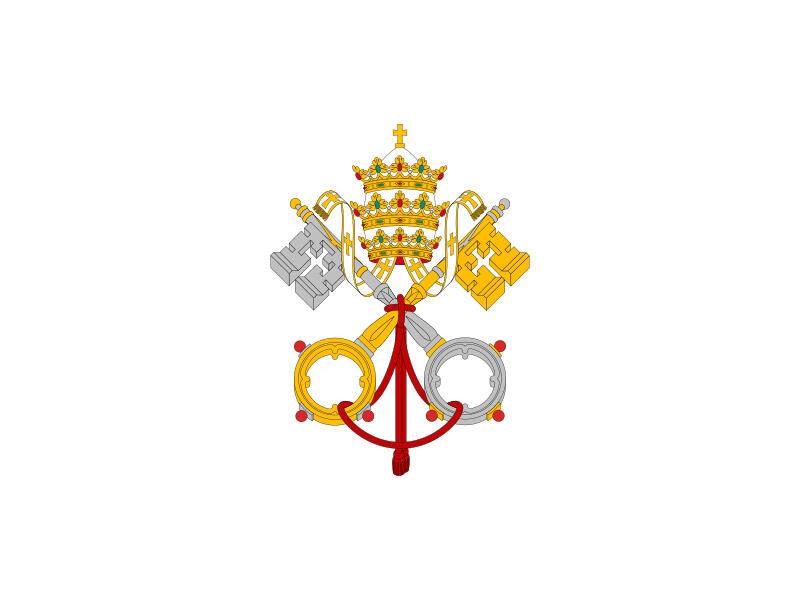The Sovereign Papal States

To All Sovereign Powers and Peoples of the World:We hereby present our case for the recognition of the Holy See's unique and unbroken sovereign authority, which stands distinct from and parallel to the modern system of nation-states. The Catholic Church remains the sole surviving institution of the Roman Empire maintaining continuous operation in Rome itself, preserving its laws, systems, and Latin administrative tradition without interruption. Unlike the Byzantine Empire, which abandoned Rome for Constantinople and adopted Greek customs, the Church maintained direct custody of Rome - the eternal city and seat of imperial authority.Our sovereignty, internationally recognized for over a millennium through the Papal States, was established by legitimate grant through the Donation of Pepin and treaties with Charlemagne, and was never legally extinguished despite the military seizure of 1870. The Church's position as a sovereign entity predates the very concept of the nation-state, deriving its authority from an unbroken institutional continuity with Rome, spiritual mandate, historical legal recognition, and continuous administration.The Lateran Treaties of 1929, signed after 59 years of papal protest, serve not as the source of our sovereignty but as modern recognition of our pre-existing sovereign rights. Modern international law, which rejects territorial acquisition by force and upholds the right of self-determination, only strengthens our case.We therefore propose that the time has come to recognize a reconstitution of the sovereign authority of the Papal States - not as a territorial claim, but as a distinct form of sovereignty paralleling the current international order.We invite rigorous debate on this matter, confident that historical precedent, legal tradition, and the principles of sovereignty support our position.Let whosoever wishes to dispute these claims come forward and engage in reasoned discourse on these matters of profound historical and legal significance.
Historical and Legal Foundations for the Recognition of Papal Sovereign AuthorityThe case for recognizing the unique sovereign status of the Holy See presents one of the most compelling challenges to conventional understanding of international law and sovereignty in the modern world. The Catholic Church represents an unparalleled case of institutional continuity in Western civilization, having maintained unbroken operation in Rome since ancient times. While empires have fallen and nations have risen, the Church has preserved not only its presence but the very administrative systems, legal frameworks, and Latin language that characterized Roman governance.The historical legitimacy of this claim is rooted in the Papal States' internationally recognized sovereignty, which extended over a millennium. This sovereignty was formally established through legal acts including the Donation of Pepin and treaties with Charlemagne, creating a recognized political entity that unified spiritual and temporal authority. Unlike other historical entities that claimed Roman succession, the Church never abandoned Rome itself. When the Byzantine Empire relocated to Constantinople, adopted Greek customs, and separated itself from the Roman heartland, the Church remained as the highest functioning Roman authority in the eternal city, maintaining direct control over the original seat of imperial power.The 1870 military conquest of the Papal States represents a critical juncture in this history. Under modern international legal principles, such forcible acquisition of territory lacks legitimacy. The subsequent 59-year protest by the papacy, during which no Pope left the Vatican, demonstrates the Church's unwavering assertion of its sovereign rights. The Lateran Treaties of 1929, rather than creating new rights, can be viewed as acknowledging under duress the Church's pre-existing sovereign status.Modern international law, particularly through the UN Charter, emphasizes the right of self-determination. The Church, as a sovereign entity predating the modern nation-state system, never consented to incorporation into any modern state. This principle of self-determination takes on particular significance when applied to the Church as a transnational sovereign entity with continuous historical existence.The Church's sovereignty represents a unique case that predates and exists parallel to the modern system of nation-states. This sovereignty derives from multiple sources: direct institutional continuity from antiquity, religious authority, historical legal recognition, and continuous administration of its internal affairs. These elements combine to create a form of sovereignty that could arguably supersede newer forms of state sovereignty, existing alongside, rather than subordinate to, the current international order.Summary of Key PointsA. Historical Continuity- Sole surviving institution from antiquity maintaining continuous operation in Rome
- Preserved Roman administrative systems, law, and Latin as living tradition
- Maintained direct control of Rome while Byzantine Empire moved eastB. Legal Precedent- Papal States sovereignty recognized internationally for over 1000 years
- Established through formal legal acts (Donation of Pepin, Charlemagne treaties)
- 1870 seizure represents invalid territorial acquisition by force
- 59-year papal protest demonstrates continuous assertion of rightsC. Modern Legal Framework- UN Charter protects right of self-determination
- International law prohibits acquisition of territory by force
- Lateran Treaties acknowledge pre-existing sovereign rights
- Church never consented to incorporation into modern stateD. Unique Sovereign Status- Predates modern international law and nation-state system
- Sovereignty never legally extinguished
- Represents distinct form of sovereignty parallel to modern states
- Maintains strongest historical continuity with RomeE. Foundation for Recognition- Continuous institutional presence since antiquity
- Preserved original Roman administrative traditions
- Maintained direct control of historic Roman center
- Uninterrupted sovereign identity despite territorial changes